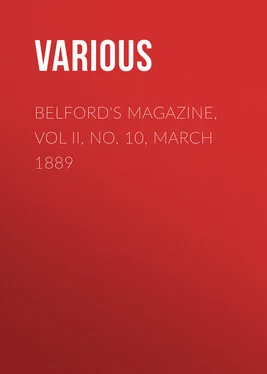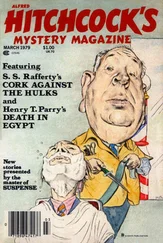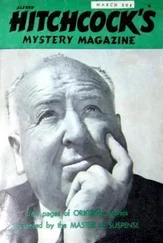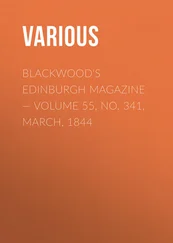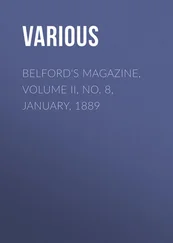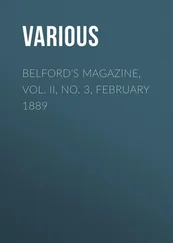Various - Belford's Magazine, Vol II, No. 10, March 1889
Здесь есть возможность читать онлайн «Various - Belford's Magazine, Vol II, No. 10, March 1889» — ознакомительный отрывок электронной книги совершенно бесплатно, а после прочтения отрывка купить полную версию. В некоторых случаях можно слушать аудио, скачать через торрент в формате fb2 и присутствует краткое содержание. Издательство: Иностранный паблик, Жанр: periodic, foreign_edu, на английском языке. Описание произведения, (предисловие) а так же отзывы посетителей доступны на портале библиотеки ЛибКат.
- Название:Belford's Magazine, Vol II, No. 10, March 1889
- Автор:
- Издательство:Иностранный паблик
- Жанр:
- Год:неизвестен
- ISBN:нет данных
- Рейтинг книги:5 / 5. Голосов: 1
-
Избранное:Добавить в избранное
- Отзывы:
-
Ваша оценка:
- 100
- 1
- 2
- 3
- 4
- 5
Belford's Magazine, Vol II, No. 10, March 1889: краткое содержание, описание и аннотация
Предлагаем к чтению аннотацию, описание, краткое содержание или предисловие (зависит от того, что написал сам автор книги «Belford's Magazine, Vol II, No. 10, March 1889»). Если вы не нашли необходимую информацию о книге — напишите в комментариях, мы постараемся отыскать её.
Belford's Magazine, Vol II, No. 10, March 1889 — читать онлайн ознакомительный отрывок
Ниже представлен текст книги, разбитый по страницам. Система сохранения места последней прочитанной страницы, позволяет с удобством читать онлайн бесплатно книгу «Belford's Magazine, Vol II, No. 10, March 1889», без необходимости каждый раз заново искать на чём Вы остановились. Поставьте закладку, и сможете в любой момент перейти на страницу, на которой закончили чтение.
Интервал:
Закладка:
Various
Belford's Magazine, Vol II, No. 10, March 1889
WEALTH AND ITS CONSEQUENCES
When the government established by our forefathers became a recognized fact both at home and abroad, and for three-quarters of a century thereafter, no one dreamed that the greatest danger which threatened its existence was the wealth which might accumulate within its realm; indeed, no one ever dreamed of the possibilities which lay in that direction.
It is only during the past twenty years that the accumulation of wealth has entered into the problem. Down to the period of 1861, the only disturbing element of any magnitude was slavery. It was the slavery problem which weighed so heavily upon the "godlike" Webster. It was an ever-present, ghastly, and hideous form, appealing to his patriotic soul. It is certain that it cast a shadow of melancholy over his whole life. But Mr. Webster did not live to witness the dreadful loss of life and treasure, and the awful gloom, of its going out.
There is a question now of far greater magnitude than that which was settled by the sword, and that is the question of the enormous wealth, and its increase in the hands of the few. No reference is now made to the owners of the thousands or the hundreds of thousands – to the industrious and prosperous people scattered all over the land; for moderate wealth, universally diffused, is the prime safeguard of a nation: but I refer to the millions, the tens of millions, and the hundreds of millions owned and controlled by the few.
The ignorant poor and the no less ignorant rich may ridicule or sneer at the expression of fear that harm may come to the Republic on account of great wealth; but ridicule never settled any question. Ridicule is always the weapon of the ignorant and the vicious. None but the ignorant will ridicule the subject, for the history of the world reveals the destruction of nations on account of wealth – never from poverty.
What if a man does have millions – is it any of the people's business? is the query of the ignorant. This is the question that is to be solved. This is, in fact, the supreme question. If the government is a government of the people and for the people, under the people's Constitution the people have the right to protect themselves. If the possession of millions by any person is a menace to the liberties of the people and to the permanence of their government, the people have the right to legislate upon the matter and to protect themselves. That this Republic belongs to the people, no one can doubt. That it was established, by their blood and treasure, as an asylum for the oppressed of all nations and the perpetual abode of free men, every page of American history attests. The protest of our forefathers to British tyranny, the Declaration of Independence, the war which followed, the steps taken for the adoption of a Constitution, the Bill of Rights, and the Constitution all declare, in terms not to be mistaken, the right of the people to protection against foes from within and foes from without. How this menace will be met I have no means of knowing; but that it must be met, or sooner or later the Republic will be destroyed, no intelligent man can doubt.
As matters now stand, bad as they are, it might perhaps be endurable; but wealth accumulates, and the man with ten millions to-day may have a hundred millions in ten years, and the man with a hundred millions may have a thousand. There is not a king or an emperor on a throne to-day that would be safe a single moment with a subject possessing a thousand million dollars; and can it be expected that a Republic would be safer? The wealth of the Rothschilds was for a long time the wonder of the world. They held the purse-strings of nearly all Europe; kings, emperors, and principalities were and are yet at their mercy. But the wealth of the Rothschilds, the accumulations of generations, pales into insignificance before the wealth of the Vanderbilts, the Goulds, the Astors, the Lelands, the Carnegies, and the Spreckels, when the period of acquisition is taken into account. History fails to record any accumulation of wealth so rapid and so colossal as that which has taken place in this country, and during a period of from five to twenty-five years.
The wealth of the Rothschilds has been the marvel of generations until within the past decade; but their wealth ceases to dazzle and bewilder even the youths of America in this generation. Their wealth, however, has been the accumulation of a hundred and twenty-five years, with all Europe for their field of operations. Their accumulations do not represent the robbery of the masses. They never levied a tax upon or demanded a toll upon the necessaries of life. Their operations were mainly confined to the negotiation of loans, the placing of investments for the wealthy men of Europe, and to the legitimate sphere of banking. They had a bank in the capitals of France, Austria, Italy, England, and Prussia; but neither of those nations ever gave them the authority to issue money. The toiling millions of Europe are taxed to maintain armies and support dynasties; but they were never the subjects of a moneyed aristocracy, or victims to their cupidity, in the sense that American toilers are. Emperors and kings did indeed make their burdens heavy, and oft-times intolerable, but they taxed to maintain their governments. They were the sole despots or robbers; and there is this difference between the robbers of Europe and those of America: that European despots maintained a government, while the American despots rob the people, by the aid of the government, for purely personal profit. True, the Rothschilds' power was great. They could probably make or unmake kings; but their power was never used to build up towns and cities in one section of country and tear them down in another; to build up manufacturing establishments and great commercial monopolies in one kingdom or state, and destroy them elsewhere. They never attempted to control lines of transportation, corner the price of meat, bread, coffee, sugar, light, fuel, and other necessaries of life. No such operations were ever attempted by them, and no king or emperor would have been safe a day upon his throne who would have permitted such crimes as have been and are openly perpetrated by the millionaires of our country in their operations with beef, pork, coffee, oil, coal, sugar, wheat, and almost every other necessary of life. Under an absolute, or even a limited monarchy, these evils can be prevented or remedied; but as yet no means have been discovered to remedy or prevent them under our form of government.
Events of great magnitude crowd fast upon each other in our rapidly growing country. New questions of great importance and new phases of old questions have arisen and assumed huge proportions in a brief period, requiring the highest virtue, intelligence, and patriotism to deal with; and, while yet there may appear no constitutional means for protection against the illegitimate use of wealth under the operation of trusts and syndicates, without infringing upon the constitutional rights of citizens, it is absolutely certain that a way must be found to do so, or this great Republic, which promised so much for humanity, will cease to exist, and the hope of a "government of the people, for the people, and by the people" will be crushed from out the hearts of men.
N. G. Parker.A YOUNG GIRL'S IDEAL
There are people one meets with now and then who seem so perfectly fitted to their age and condition that it is difficult and almost painful to imagine them in any other – some old ladies, for instance, so sweet-faced, cheery-hearted, and placid-minded that one rebels against the reflection that they were ever crude, impulsive girls or busy matrons; and some busy matrons there are whose supply of energy and capacity seems so admirably to equal the demands made upon it that, for them, girlhood and old age appear to be alike – states of lacking opportunity; and, in the third place, there are crude, impulsive girls who wear these attributes so blithely that one does not want to think of them developed and matured.
Читать дальшеИнтервал:
Закладка:
Похожие книги на «Belford's Magazine, Vol II, No. 10, March 1889»
Представляем Вашему вниманию похожие книги на «Belford's Magazine, Vol II, No. 10, March 1889» списком для выбора. Мы отобрали схожую по названию и смыслу литературу в надежде предоставить читателям больше вариантов отыскать новые, интересные, ещё непрочитанные произведения.
Обсуждение, отзывы о книге «Belford's Magazine, Vol II, No. 10, March 1889» и просто собственные мнения читателей. Оставьте ваши комментарии, напишите, что Вы думаете о произведении, его смысле или главных героях. Укажите что конкретно понравилось, а что нет, и почему Вы так считаете.
